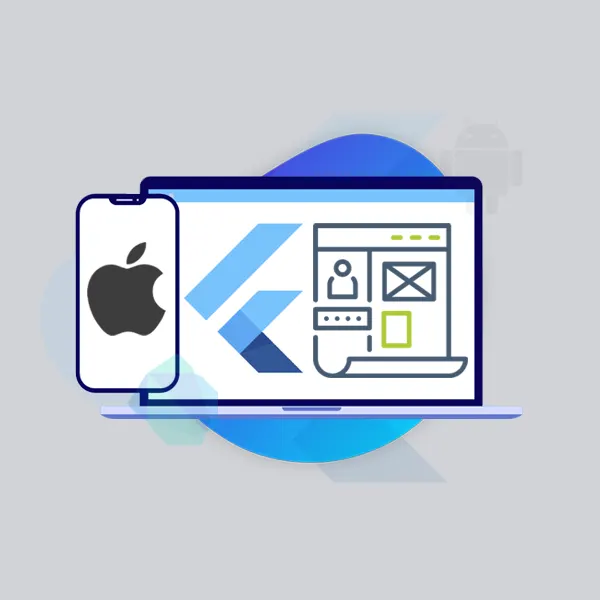What is Flutter, and how is it different from other mobile app development frameworks?
Flutter is an open-source UI software development kit (SDK) developed by Google. It allows developers to create native-like applications for mobile, web, and desktop platforms using a single codebase. Flutter utilizes the Dart programming language and offers a rich set of pre-built UI components, known as widgets, that enable the development of visually appealing and responsive applications.
Here are some key aspects that differentiate Flutter from other mobile app development frameworks:
Cross-platform development:
Flutter enables developers to build applications that run natively on multiple platforms, including iOS, Android, web, and desktop, using a single codebase. This helps save time, effort, and resources compared to developing separate codebases for different platforms.
Fast development and hot reload:
Flutter's hot reload feature allows developers to see the changes made in the code immediately reflected in the app's UI, without requiring a full rebuild or app restart. This significantly speeds up the development process and enables quick experimentation and iteration.
Native-like performance:
Flutter achieves high-performance and smooth animations by utilizing its own rendering engine, called Skia, and by compiling the Dart code into native machine code. This results in applications that feel and perform like native apps, without the need for performance sacrifices or additional bridges between the app and the platform.
Customizable and rich UI:
Flutter provides a vast collection of customizable UI widgets that help developers create visually stunning and engaging user interfaces. These widgets are designed to follow the Material Design guidelines for Android and Cupertino design for iOS, ensuring a native-like appearance on both platforms.
Strong community and ecosystem:
Flutter has a vibrant and growing community of developers, which means access to extensive documentation, libraries, and resources. The Flutter ecosystem offers numerous packages and plugins that expand the capabilities of Flutter apps, making it easier to integrate with various services, APIs, and third-party libraries.
How long does it take to develop a Flutter app?
The time required to develop a Flutter app can vary significantly depending on several factors, including the complexity of the app, the features and functionality involved, the team's experience and expertise, and the project's scope and requirements. It's important to note that estimating the exact development time is challenging without specific project details. However, I can provide a general overview of the development timeline for a Flutter app.
For a simple Flutter app with basic features, it may take a few weeks to develop. This includes tasks such as project setup, UI design, core development, testing, and deployment.
What are the benefits of using Flutter for app development?
There are several benefits to using Flutter for app development:
Cross-platform development:
Flutter allows you to write code once and deploy it on multiple platforms, including iOS, Android, web, and desktop. This significantly reduces development time and costs compared to building separate native apps for each platform.
Fast development and hot reload:
Flutter's hot reload feature allows developers to see the changes made in the code immediately reflected in the app's UI, without requiring a full rebuild or app restart. This speeds up the development process, enables quick experimentation, and facilitates rapid iteration.
Native-like performance:
Flutter apps are compiled to native machine code, which ensures high performance and smooth animations. The use of Flutter's own rendering engine, called Skia, eliminates the need for platform-specific bridges, resulting in apps that feel and perform like native applications.
Rich and customizable UI:
Flutter provides a rich set of pre-built UI components, known as widgets, which can be customized to create visually stunning and engaging user interfaces. The widgets follow platform-specific design guidelines (Material Design for Android, Cupertino for iOS), ensuring a native-like appearance on both platforms.
Access to native features and APIs:
Flutter allows direct access to native device features and APIs, enabling developers to integrate device-specific functionality seamlessly into their apps. This means you can leverage platform capabilities such as camera, geolocation, sensors, and more, without sacrificing performance or user experience.
TAGS: What is Flutter, and how is it different from other mobile app development frameworks, Flutter Dev Team, Flutter Developer, Flutter Development, Looking Mobile app Team, Mobile App Dev Team, Mobile App Development, Looking for Flutter Dev Team in India, Looking for Flutter Developer team in India, Looking for Flutter Development service Company, OffShore Flutter Development Service in USA
